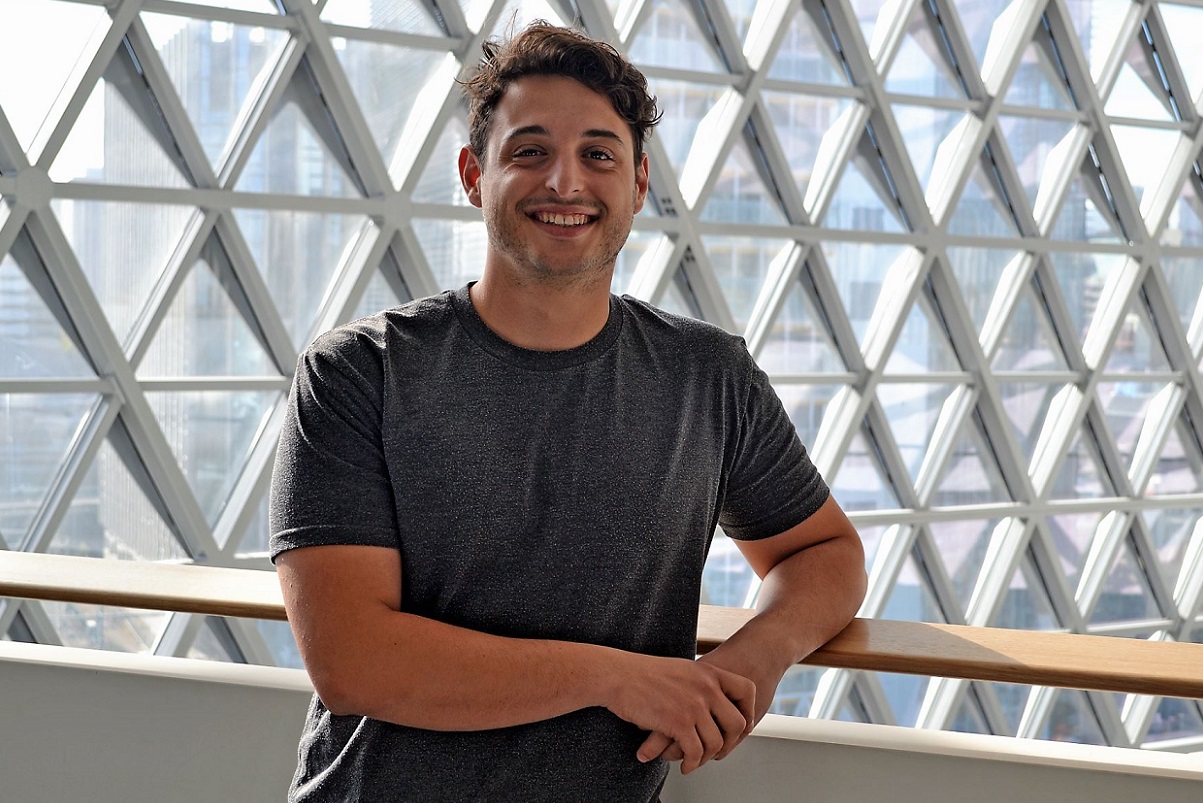
Flinders PhD candidate Matthew Iasiello is clarifying a new model of mental health. Sharing his findings at conferences around the world, the SAHMRI-based researcher is already helping to change lives as he shines a new light on how interventions can be used to prevent, or treat, mental illness.
What made you decide to pursue research in the field of mental health?
I’ve always wanted to conduct the type of research that makes a real difference to people’s lives. And when you think about things that affect people’s lives, mental illness comes straight to mind. Mental illness is a significant challenge for millions of people around the world. Not only does it affect a lot of people, the impact on their lives is massive and can be devastating to the individuals and the people around them. I want to help contribute to research that helps people prevent the onset of mental illness in their lives, or helps them to manage it.
What is your current research about?
I’m focusing on the relationship between mental illness and mental health. You might be thinking that they’re the same thing, and for a long time, we have assumed that mental illness and mental health are opposites of each other. As we’ve learnt more about what mental health is, it has been found that mental illness and mental health are different, and a person can actually have a high level of mental health even with a mental illness.
By mental health, I’m talking about a high level of wellbeing, which is affected by things like having a sense of meaning or purpose, warm relationships with others, and being satisfied with your life. I’m researching this new model of mental health, and the implications that it could have on our mental health care system.
How will your work benefit the wider community?
This new model completely changes the way we think about mental health, how we prevent illness and provide mental health care to those suffering.
Generally, our system is set up to reduce the symptoms of mental illness, either through medication or therapy. This model suggests that if we can improve people’s mental health, they are much less likely to develop a mental illness over time. It also suggests that if you have a mental illness, by focusing on building your mental health (as well as reducing the symptoms of illness), then you’re much more likely to recover from that illness. It also gives people with chronic mental illness – who may be unlikely to recover from their illness – a new way to think about their mental health, it can help them manage their symptoms and help them improve their quality of life. I believe this is an extremely important message for all, and I’m trying to promote it through my research.
What has been your proudest moment as a researcher?
From my PhD research, I’ve had a few proud moments. The first was being able to collaborate with the researchers in America who are leading the research of this new model of mental health and to publish a research paper with them.
The other moment was being invited to present my research as a keynote speaker at an international conference focused on mental health outcomes. The conference is happening this year and I’m very excited by the opportunity to present my ideas to an entire room of people in my field who may have the power to help create change.
What has been your most challenging moment as a researcher?
So far the challenges have been about being patient and resilient to the inevitable knock-backs and rejections that come with research. Research can move quite slowly sometimes, and it’s frustrating when you want to see change happen rapidly. Luckily my supervisor Professor Eimear Muir-Cochrane has been there to help and mentor me through each of these problems!
What does a normal day look like for you?
I work full time at the Wellbeing and Resilience Centre at SAHMRI, so I’m either at my desk reading, writing, or doing stats analysis or working on the Centre’s wellbeing projects designed to improve people’s mental health.
If there is one piece of advice you could impart on future researchers and university students, what would it be?
My advice would be to find a problem that you really care about, and learn the ways to fix it through University. Research is competitive and you need to find something you’re passionate about, and that you can inspire others to be passionate about too.
View a video that explains the focus of Matthew’s research

